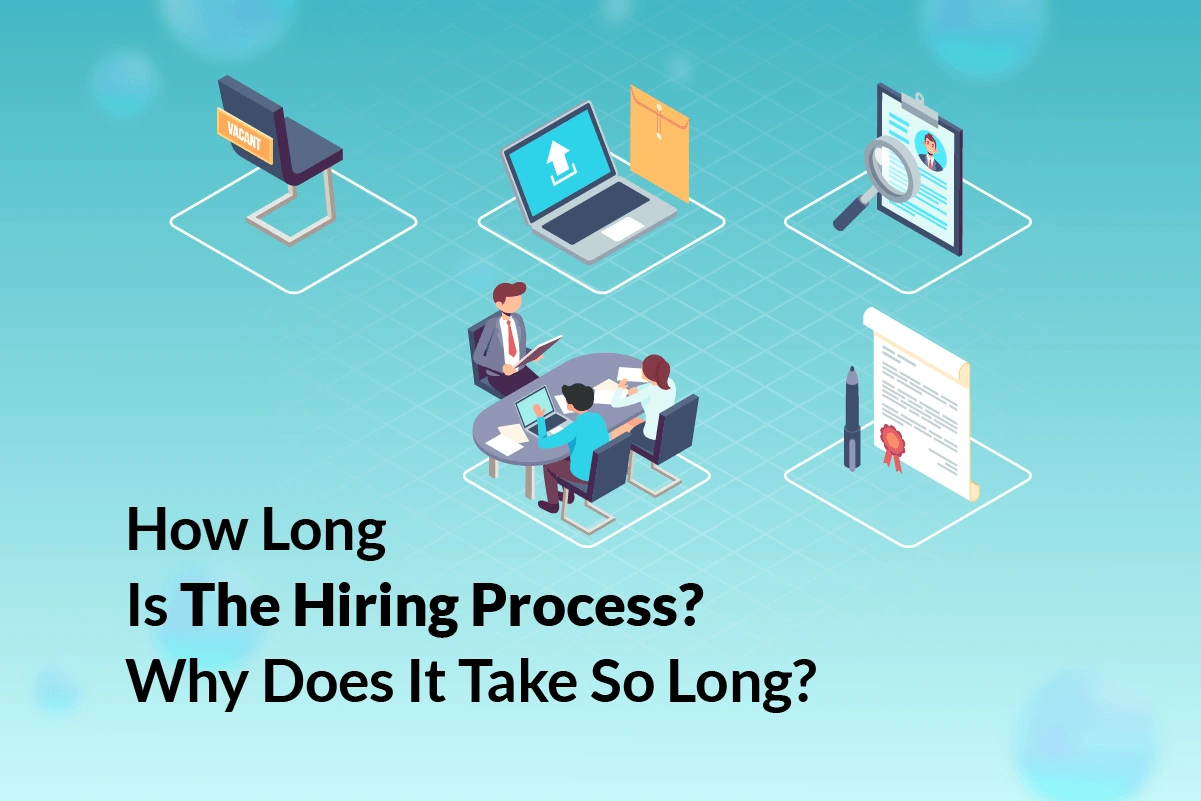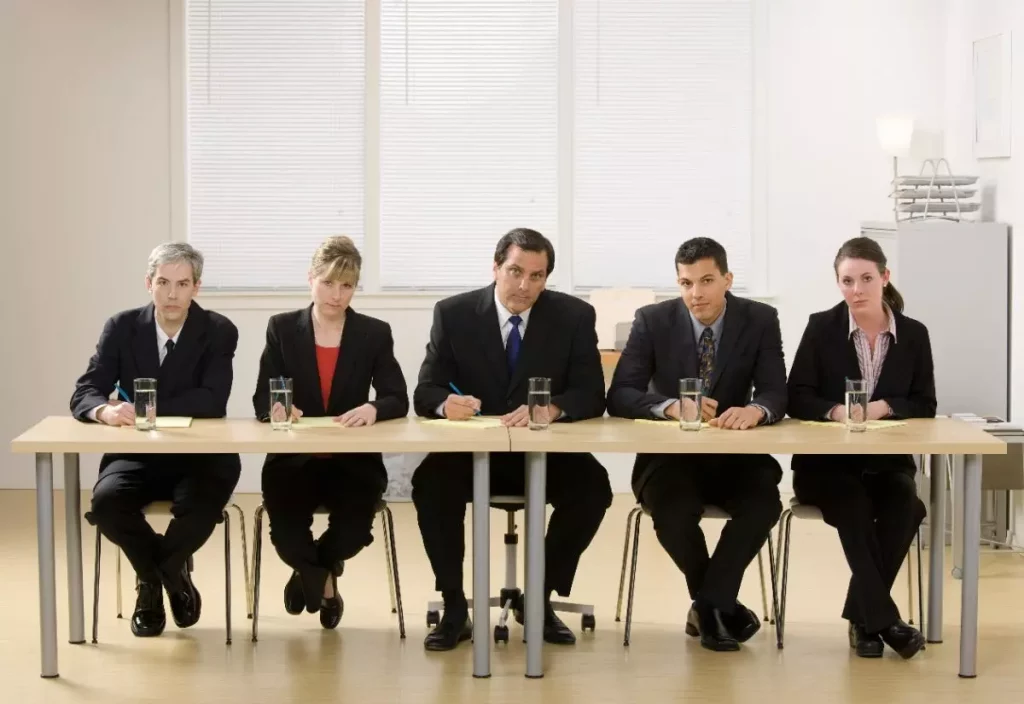Have you ever wondered, “How long is the hiring process?” It sounds like a no-brainer, but it’s essential to any company’s recruiting process. It even significantly affects recruitment costs and the retention of potential candidates.
Due to the impact of the covid-19 pandemic, many people are seeking new opportunities. So if your company is hungry for top talent, you may be able to draw them in. But your hiring process has to be a reasonable length to get the best results. Too long and you’ll lose the candidate to another opportunity. Keep reading to see more!
How Long is the Hiring Process?
There is no exact answer to this question as the length of a hiring process might vary from company to company depending on the type of open positions and the industry in which your company operates.
For example, some industries may feature a more extended process (e.g., a government job might take approximately 50 days to fill), while others make faster decisions (e.g., bar and restaurant jobs take approximately 10 days to fill).
Why Does the Hiring Process Take So Long?
There are several possible reasons why your hiring process is slower than expected, and here are the five most common:
Narrowly Defined Requirements
In many cases, being picky with your hiring process is the right thing to do. Coming out with a defined description will help you attract the best talent for the open position.
But selective criteria can be taken a bit too far and sometimes slow your hiring process. The hiring process can include more steps in the digital recruiting age.
The applicant screening process will typically include all or some of the following steps:
- A background check.
- Skills or personality testing
- Web search for the applicants’ names.
- Contacting personal and professional references.
- Analysis of applicants’ social media.
- Team interview reviews.
As you can see, finding the ideal candidate is not just reviewing resumes and interviewing.There is a lot going on behind the scenes.
Inefficient Interviewing
Highly selective criteria are not always why your recruitment process is slow. The issue sometimes comes down to a poor interviewing process. The most common errors are too many individual interviews where the candidate feels like the chain of command is very long or an interview with too many people interviewing. The most efficient and effective interviewing process is a one-on-one meeting with the direct supervisor and an interview with 2-3 interviewers representing the team or departments.
Big Candidate Pools
Receiving too many candidates for your company’s open positions can also cause slow hiring. While it will increase your chances of finding the right hire, narrowing the candidate pool makes your hiring process slower.
Ideally you want to review enough candidates to feel confident you have the the best resumes in hand but you aren’t weeding through a lot of resumes that would never make the cut.
When you have 20 resumes (before pre-screening) in hand that you are confident could do well in the role based on their past experience, you’re in a good spot.
Inappropriate Position Breakdown
If your recruitment process gets stuck and is not getting anywhere, perhaps it is time to take a great look at your job description.
A very detailed job description that has too many requirements will scare people away. Diverse candidates, especially, will not apply unless they meet over 85% of the requirements. If you have many requirements that are really just nice-to-haves, then your candidate pool will be too small. When you aren’t getting enough qualified candidates, the culprit is typically because of ineffective job posts.
Lack of Decision-Making
If your hiring process takes too long or moves too slowly you could lose top candidates because they find other roles or they feel that management is slow to make decisions. Either reason means the job seekers won’t stick around. Purge unnecessary formalities or red-tape from the hiring process. Clear your calendar and those of your team to make sure everyone is available to interview quickly once the process starts.
How to Speed up the Hiring Process?
Hire From Within
According to the Bureau of Labor Statistics (BLS), approximately 11 million open positions are waiting to be filled in the US and not nearly enough people to apply. Because of a scarce candidate pool and a very competitive market, it is challenging to hire.
So, more companies are considering internal mobility and uncovering internal talent. That way, you can find hidden treasures through personality assessments and aptitude tests.
Identify and Remove Unnecessary Steps
To boost your hiring process, it’s essential to get an accurate measurement of the current time to fill, which is the entire time it takes to fill open positions. It starts from when your company formally opens a position to when the new hire signs their offer letter.
Once you have decided how long the process takes, it is time to identify roadblocks and areas that should be shortened.
Target the Right Job Candidates
As we’ve said, the job posting is the critical factor that helps your company attract proper talent. Ensure it includes concise and accurate information. It may include job responsibilities, experience and education requirements, and the soft skills that you know a person would need to succeed in the role.
Also, your job posting should be persuasive, offering an overview of the company culture and values. Conciseness, inclusivity, charm, and accuracy will improve your talent pool and shorten your recruitment process.
=> Have you read: Hiring an independent contractor or a full-time employee?
Reach Potential Candidates via Various Applicant Channels
Placing recruiting efforts on only one platform might reduce the number of candidates that apply, resulting in delays.
Remember that using many sourcing methods throughout your recruiting process will help you quickly get the right talent. Don’t just put job ads on your company’s website. Instead, take advantage of social networking platforms like Facebook, LinkedIn, and Twitter.
Have Clear Communication with Candidates
Communication with your potential candidates must be timely, transparent, and consistent. Keeping your candidates engaged through out the process keeps the interested in your open positions and boosts your time to hire, as your candidates will be more likely to stay for an offer. If you feel like you must start over, be sure to properly disengage the candidates. But remember, if you start over, you may double your time to fill.
Contact References As Soon As Possible
Contacting references might take several days, so you should start immediately after you put a candidate on the shortlist. Contacting them quickly means you can deliver an offer letter within the week.
Wrapping It Up
Hopefully, our tips can help you eliminate the excess time in a slow recruitment process. In addition, you can find out more about hiring tips through this article:
Essential Hiring Tips For Small Business And Ways To Retain Talents
While you shouldn’t rush into filling open positions, you should spend your time and recruiting resources as efficiently as possible so you get someone hired and contributing to the company’s goals. With this point, Boulo can help:
References
- Dr. Andrew Chamberlain. (2015). Why Is Hiring Taking Longer? California: Glassdoor. Retrieved from https://www.glassdoor.com/research/app/uploads/sites/2/2015/06/why-is-hiring-taking-longer.pdf



